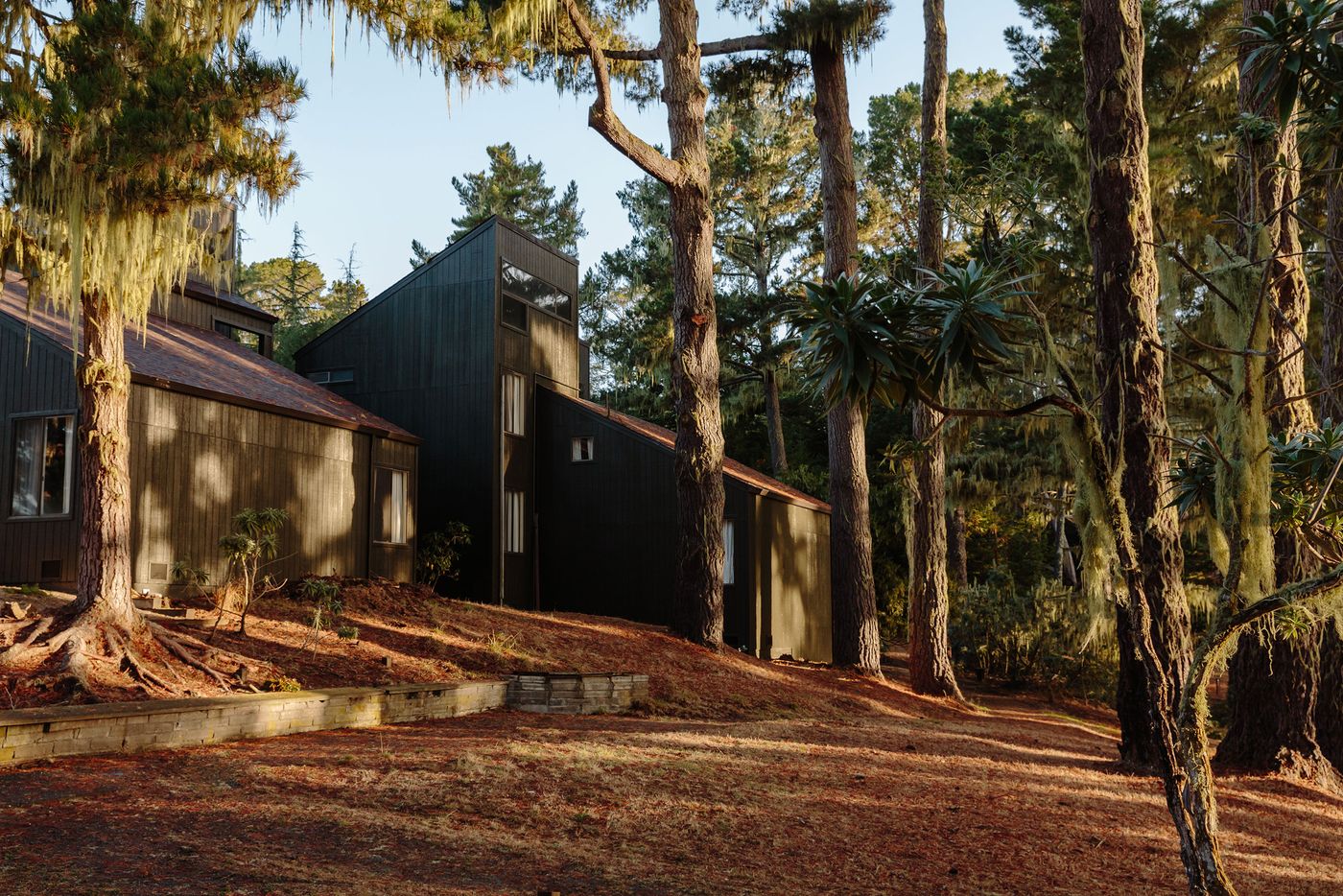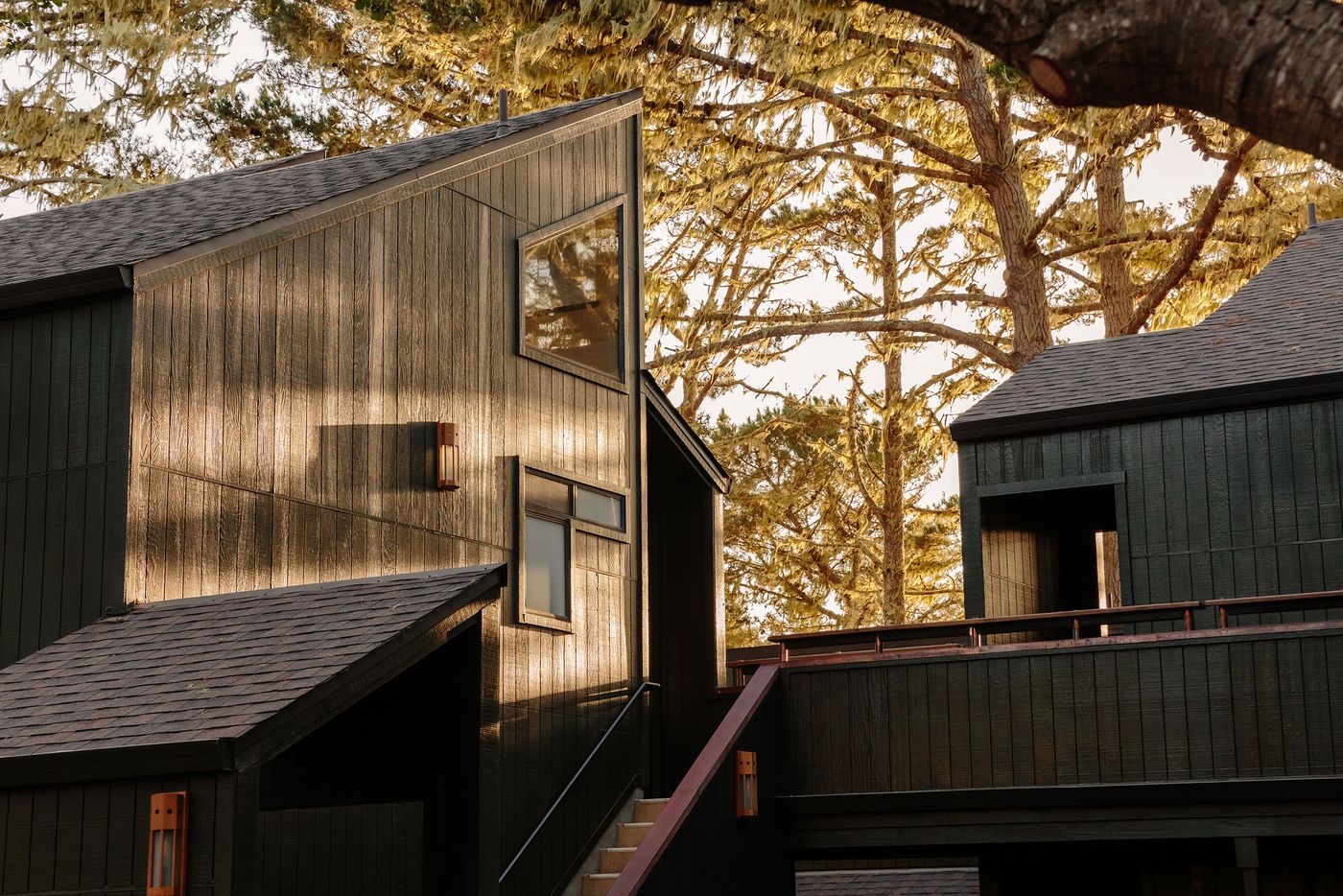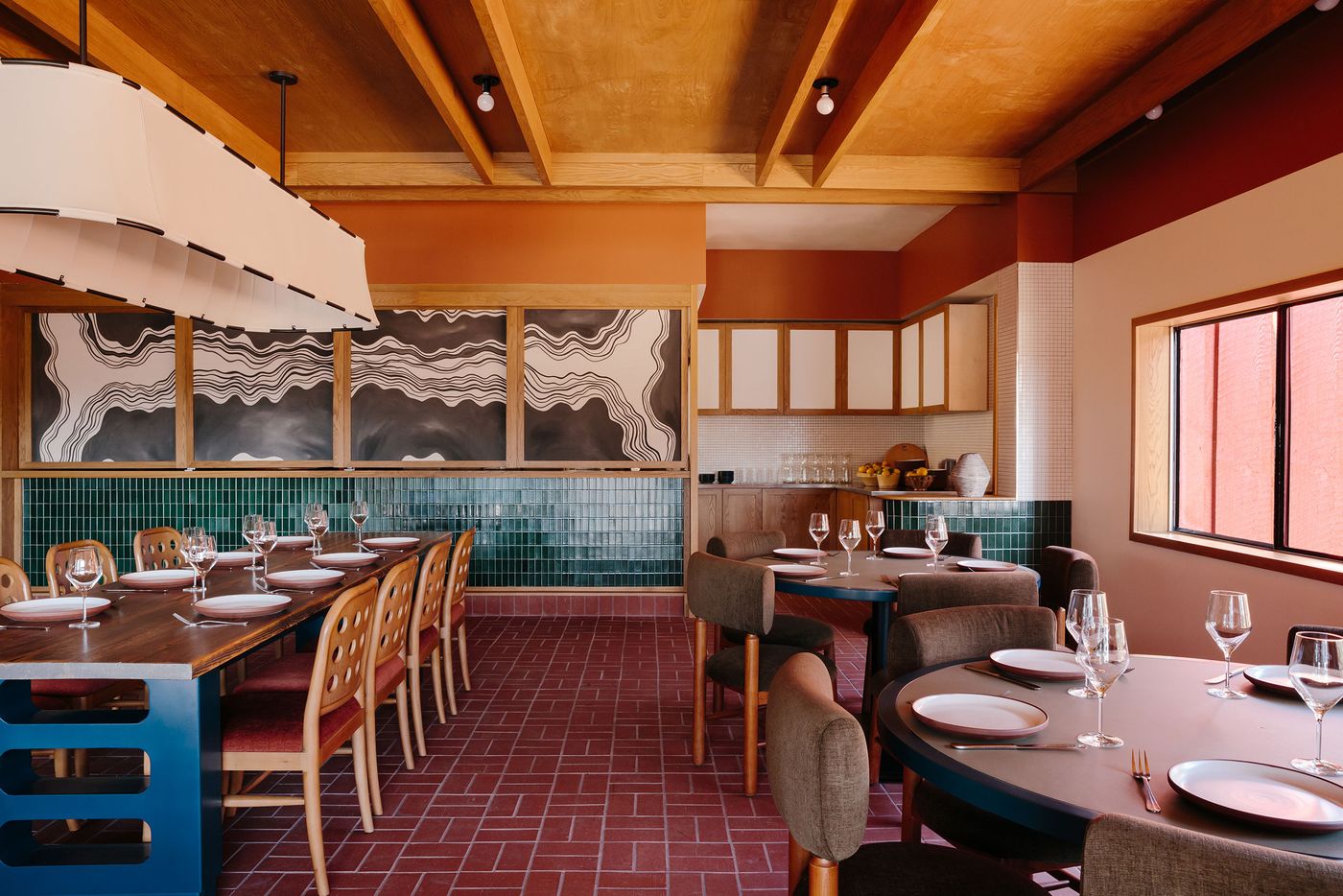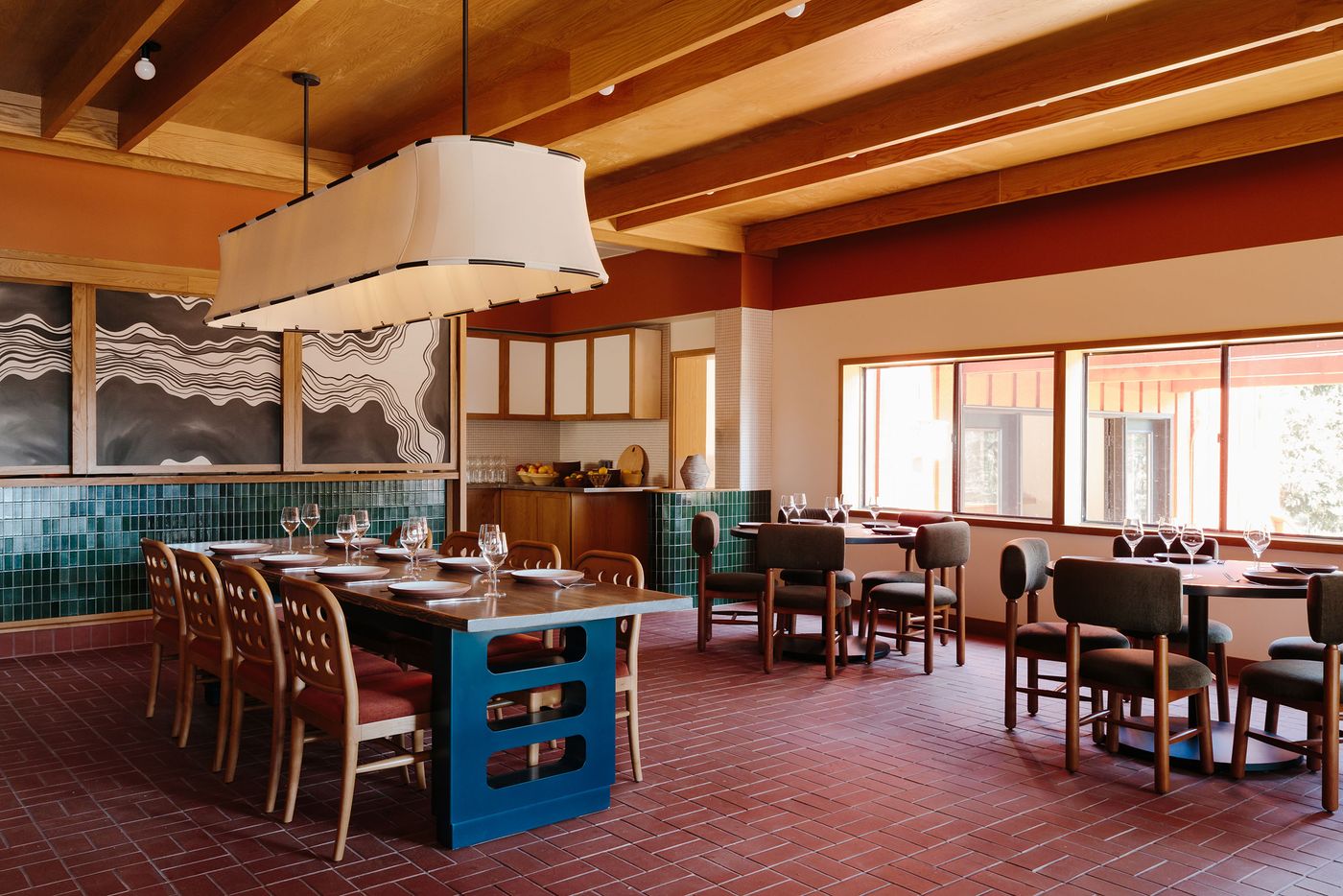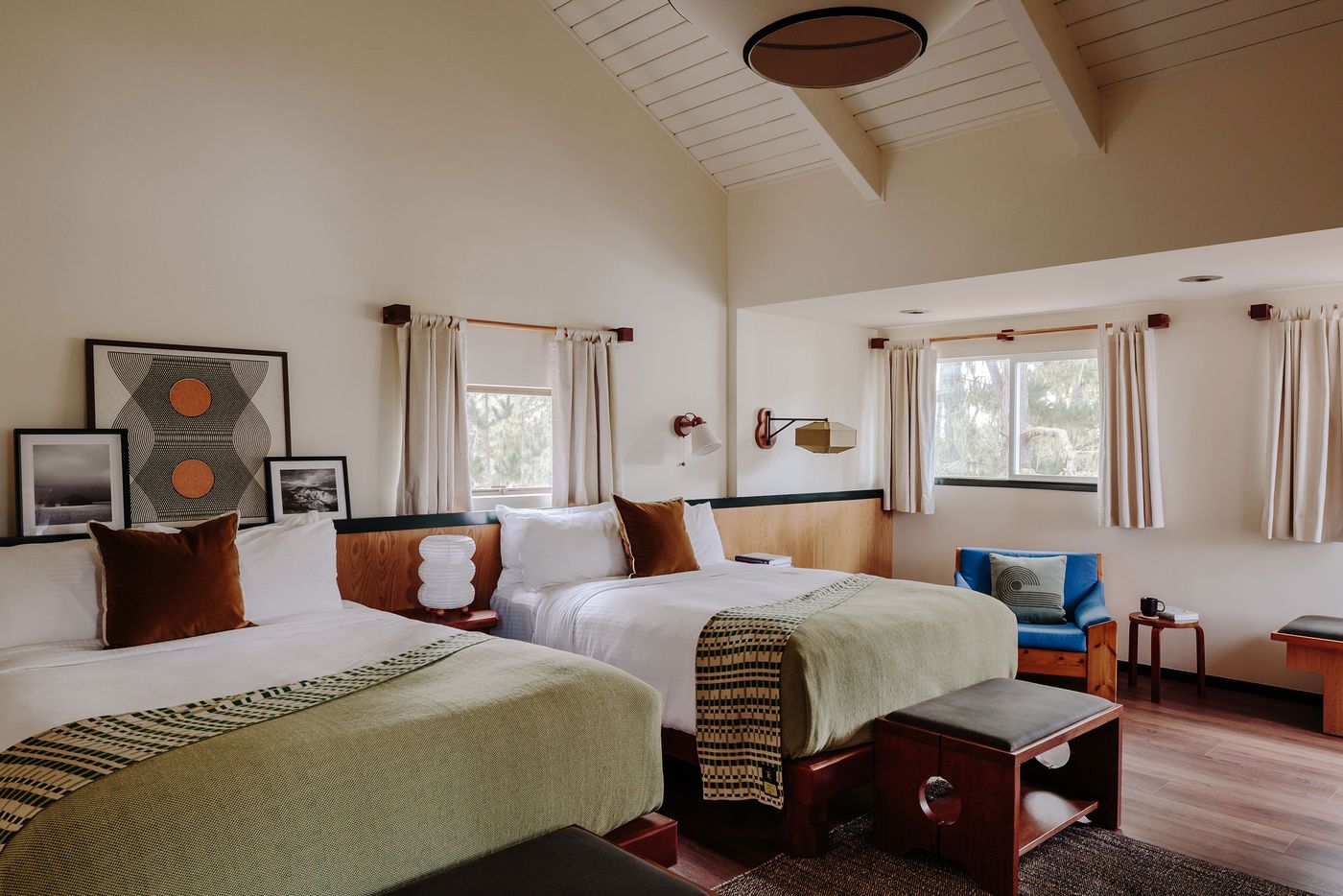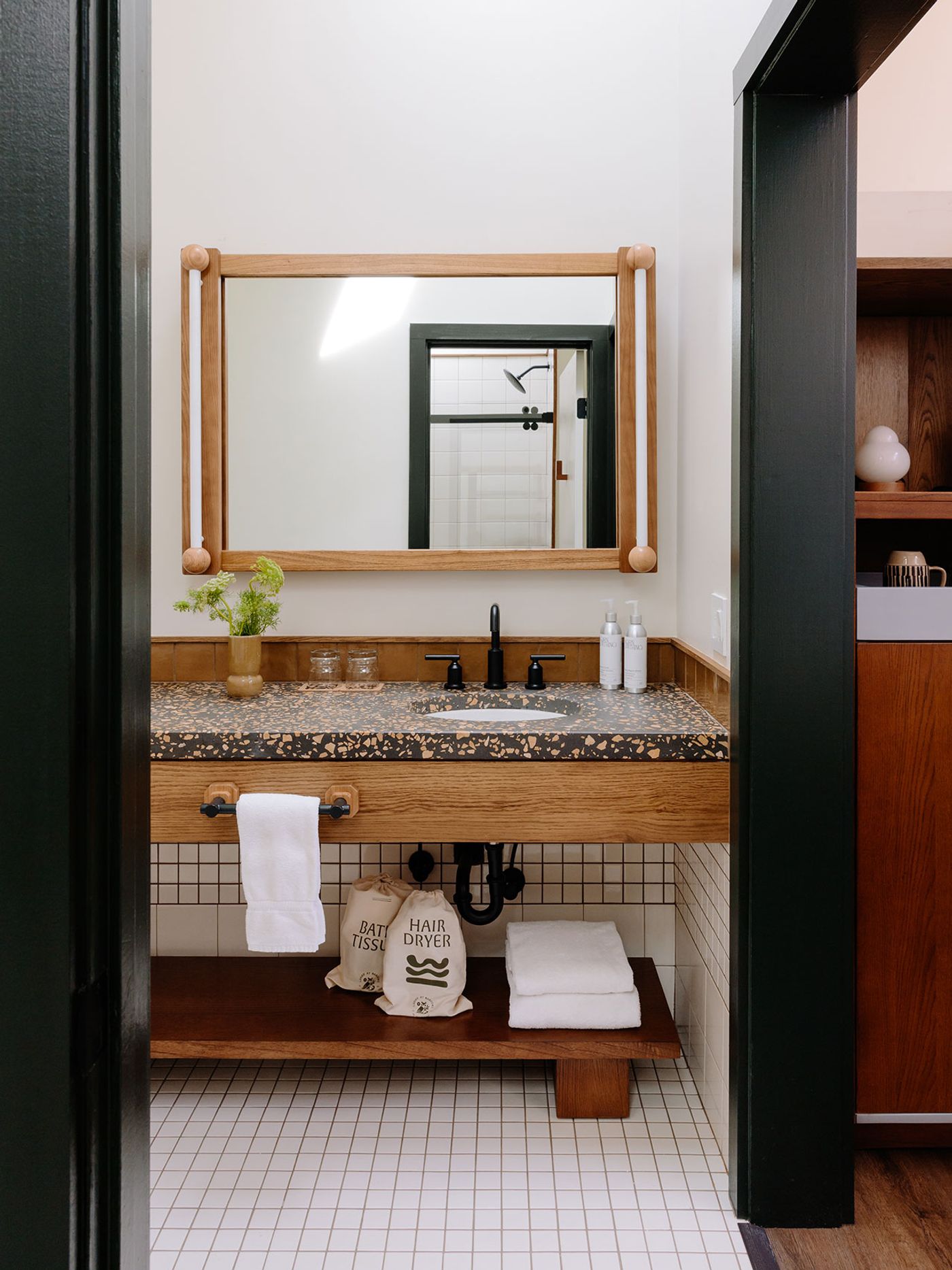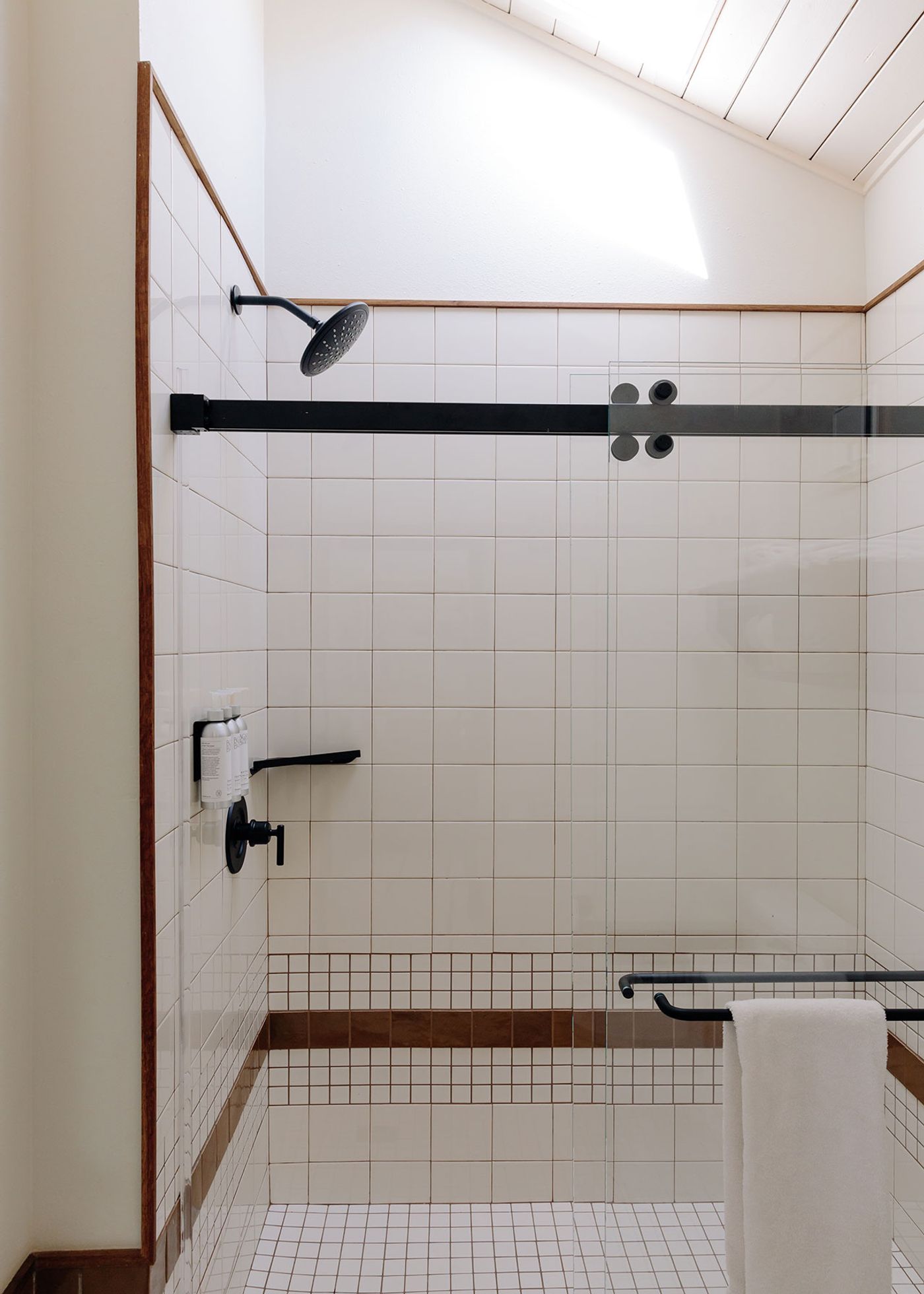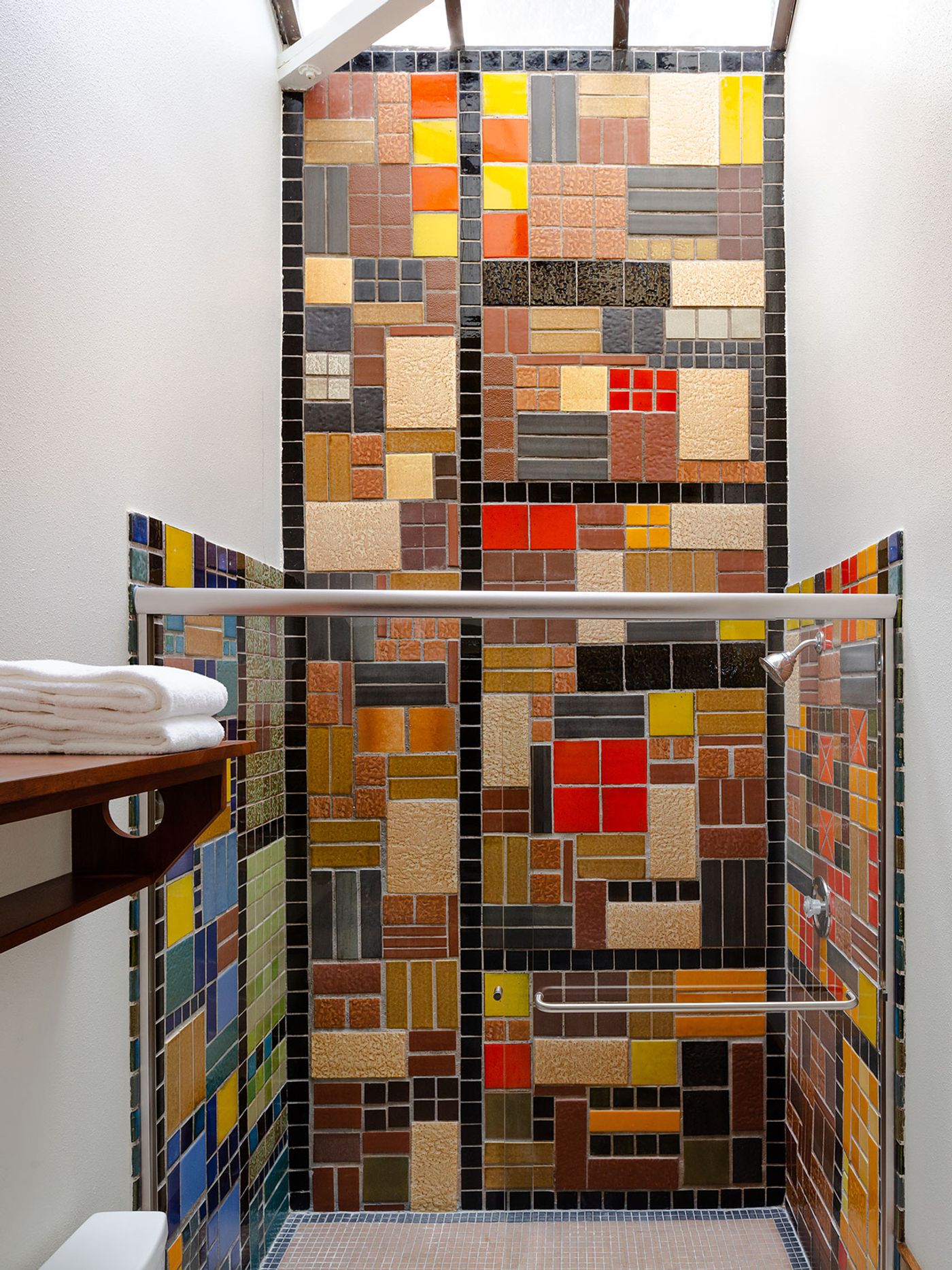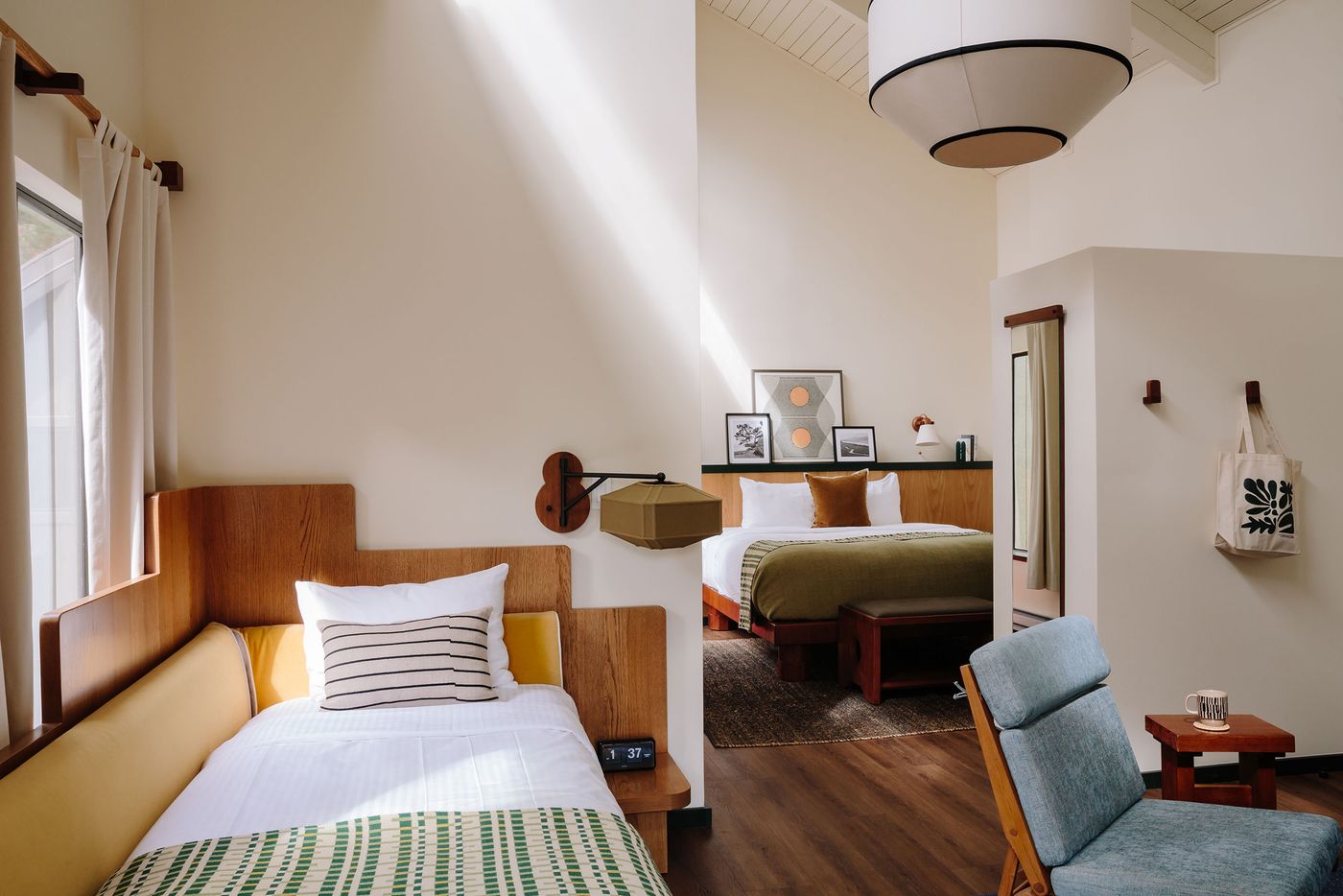
'Lodge at Marconi' Breathes New Life in a Storied Coastal Property in Northern California
Words by Eric David
Location
Marchall, United States
'Lodge at Marconi' Breathes New Life in a Storied Coastal Property in Northern California
Words by Eric David
Marchall, United States
Marchall, United States
Location
Perched atop forested hills overlooking the picturesque Tomales Bay, a long, narrow inlet located along West Marin’s scenic coastline in northern California, Lodge at Marconi is a coastal retreat that breathes new life into a century-old, historic property an hour’s drive from San Francisco. A collaboration between Nashville-based Oliver Hospitality and Brooklyn-based interior design practice Home Studios, the 45 guest-room lodge opened its doors last September after a 17-month-long renovation, welcoming guests into an unpretentious, rustic environment inspired by North Californian modernism, in what is an intentionally modest iteration rooted in the local vernacular.
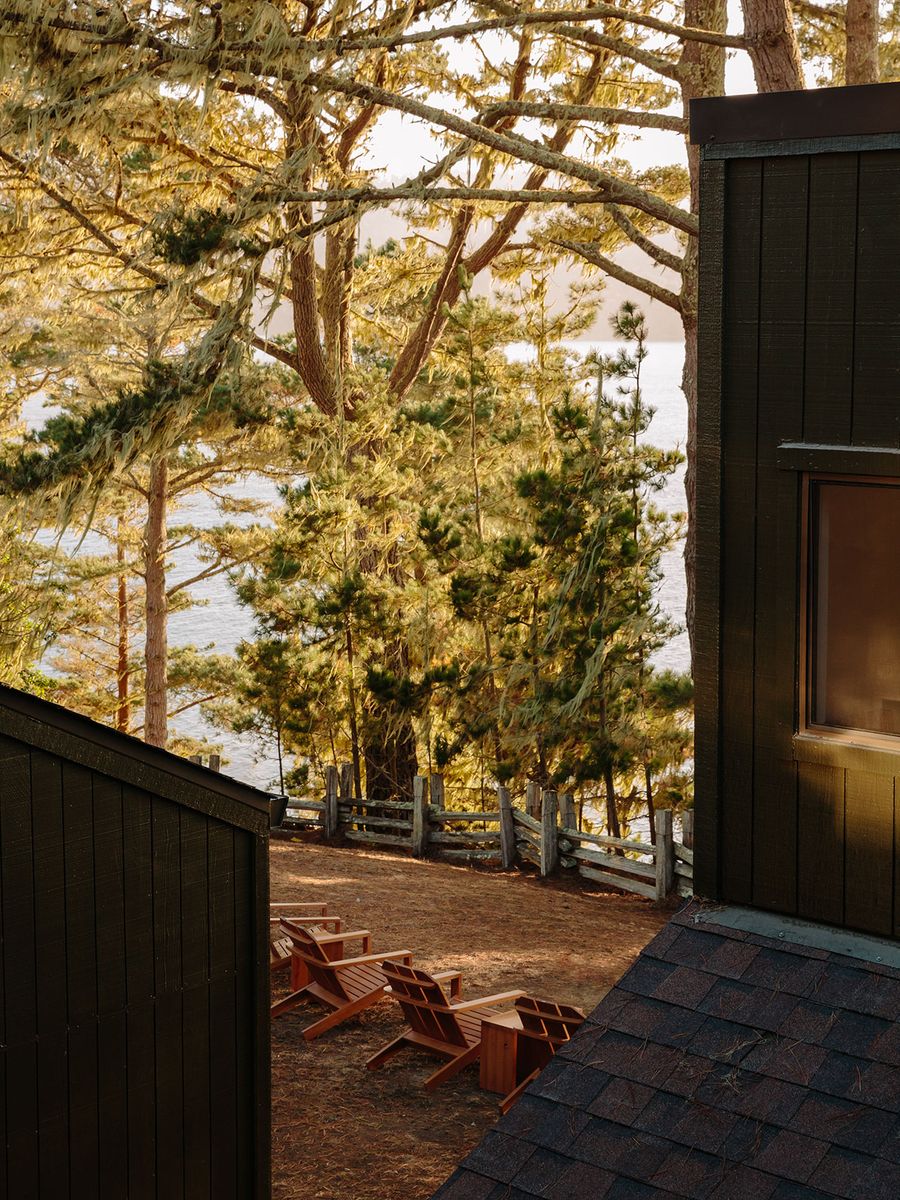
Photography by Brian W. Ferry.
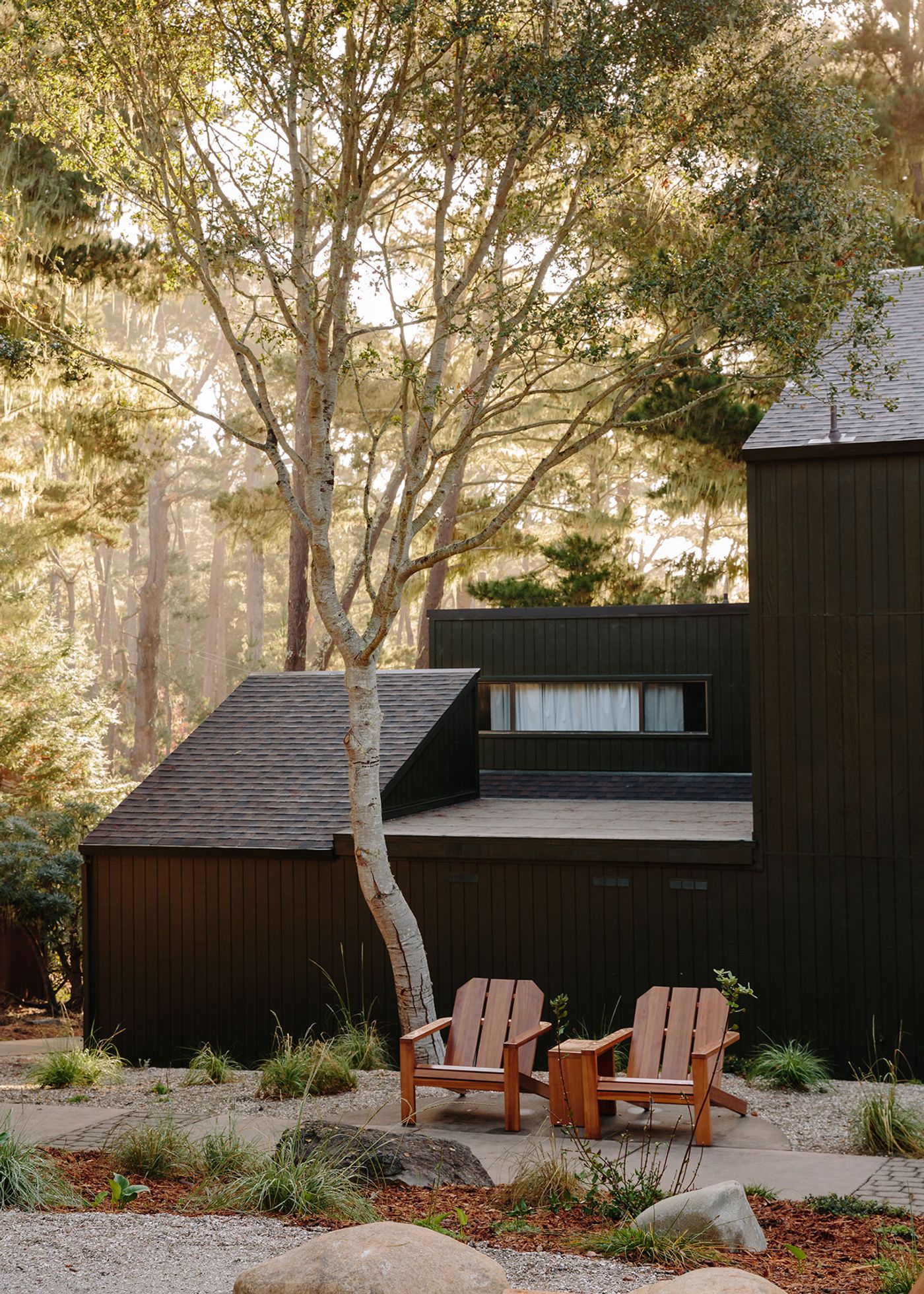
Photography by Brian W. Ferry.
Natural woods, textured ceramics and earth-tone textiles echo West Marin’s rugged natural landscape while whimsical touches and idiosyncratic moments hint at the unexpected history of the property which has, at times, hosted a luxury hotel, a rehab centre turned notorious religious cult, and a conference centre. Sitting on a sprawling 62-acre area off Highway Route 1 within the Marconi State Historic Park, the revamped retreat soulfully marries modern comforts with nostalgic charm celebrating the area’s natural beauty.
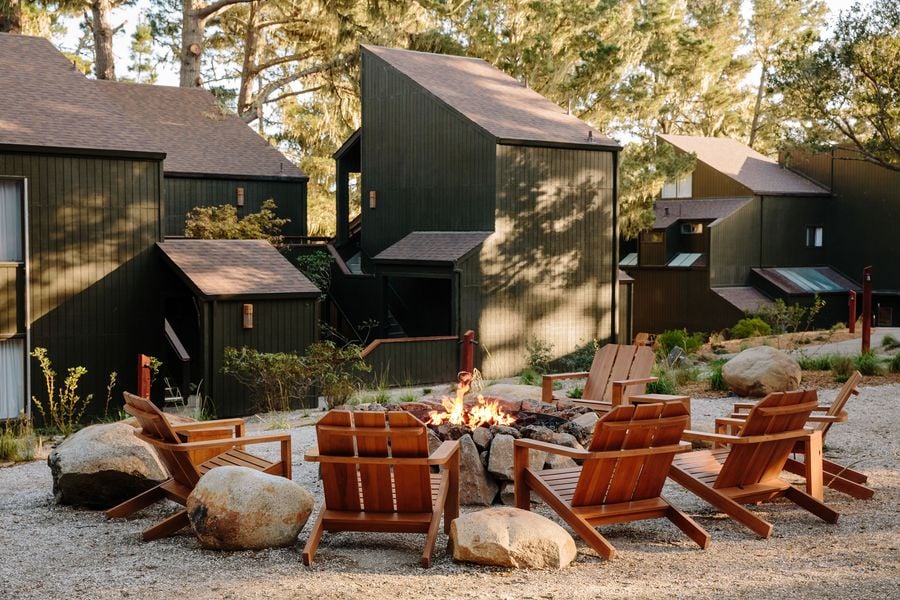
Photography by Brian W. Ferry.
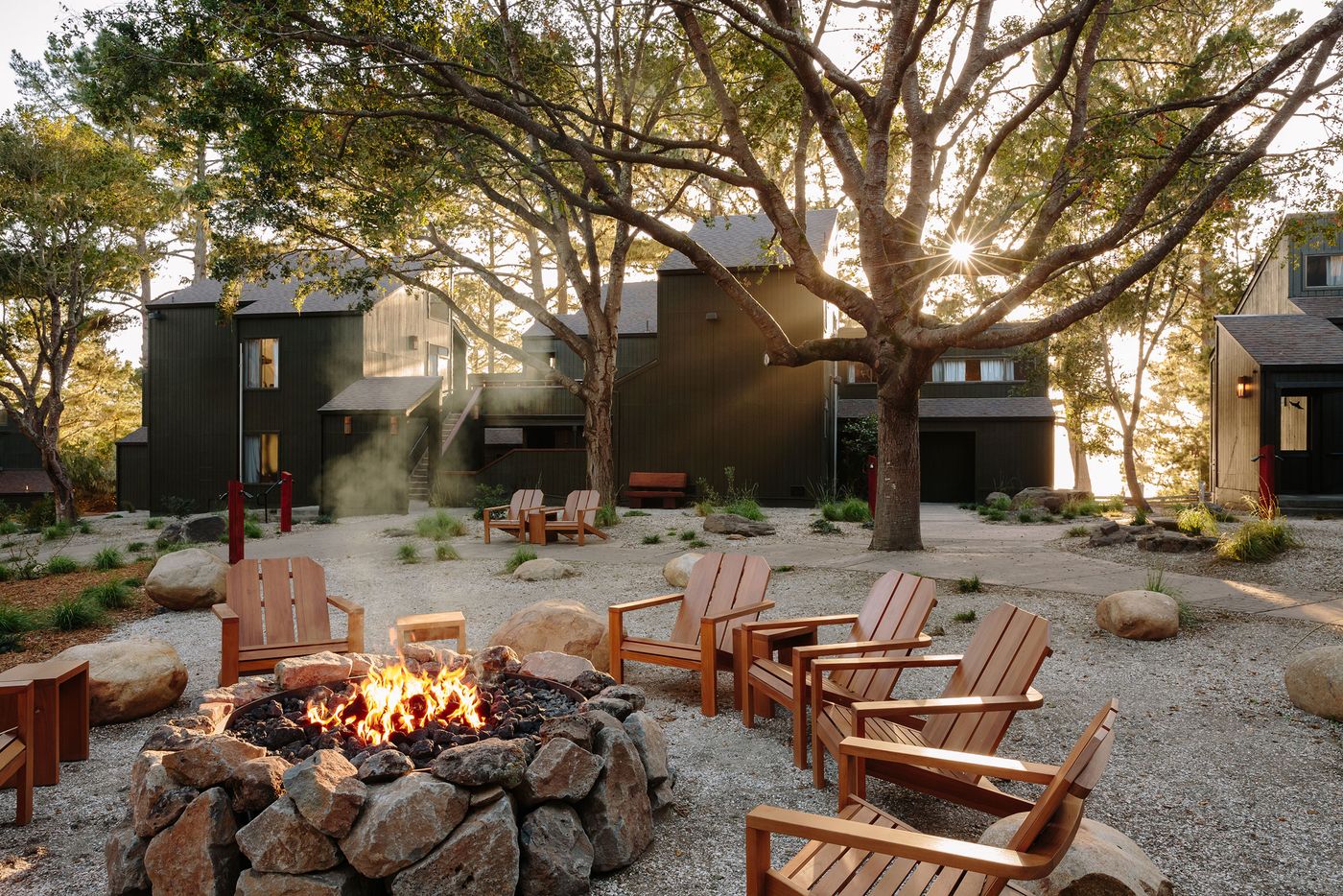
Photography by Brian W. Ferry.
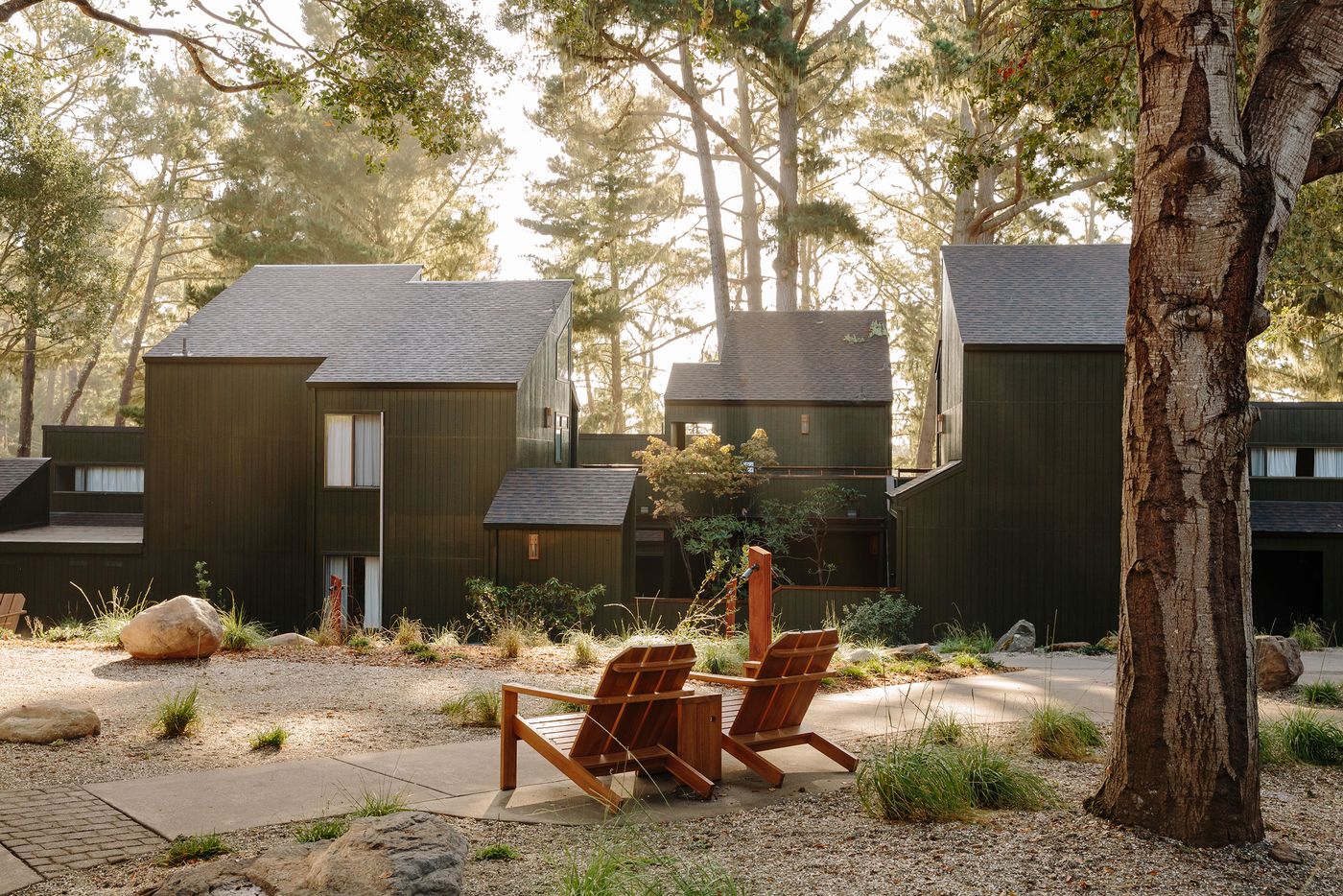
Photography by Brian W. Ferry.
Home Studios found inspiration in the property’s storied history, particularly in the pioneering spirit of Guglielmo Marconi, the inventor of the radio, who originally developed the estate back in 1914. Originally serving as a radio receiving station, the property also boasted a luxury hotel to accommodate employees and visitors of the Marconi Company. By the 1960s, the property transitioned into the hands of Synanon, a drug and alcohol rehabilitation group that later morphed into the notorious "Church of Synanon" cult, eventually disbanding in 1991. In 1972, the site saw the addition of several unique buildings conceived by the esteemed architect Ellis Kaplan, whose designs offered a seamless blend with the landscape. Later on, in the 1980s, the property found a new lease of life as a venue for corporate retreats, conferences and weddings. Now relaunched as an upscale retreat, the renovated property has come full circle, its historic character artfully filtered through a lens of nature-inspired simplicity and soulful playfulness.
Conceived more “like a summer camp” than a luxury retreat, the hotel unfolds across several free-standing, timber-built buildings housing communal spaces and a range of guest rooms and suites. Interconnected through a series of paths, the building volumes coalesce around an open space with a gas fire pit surrounded by Adirondack chairs and natural boulders where guests can relax and mingle camp-style.
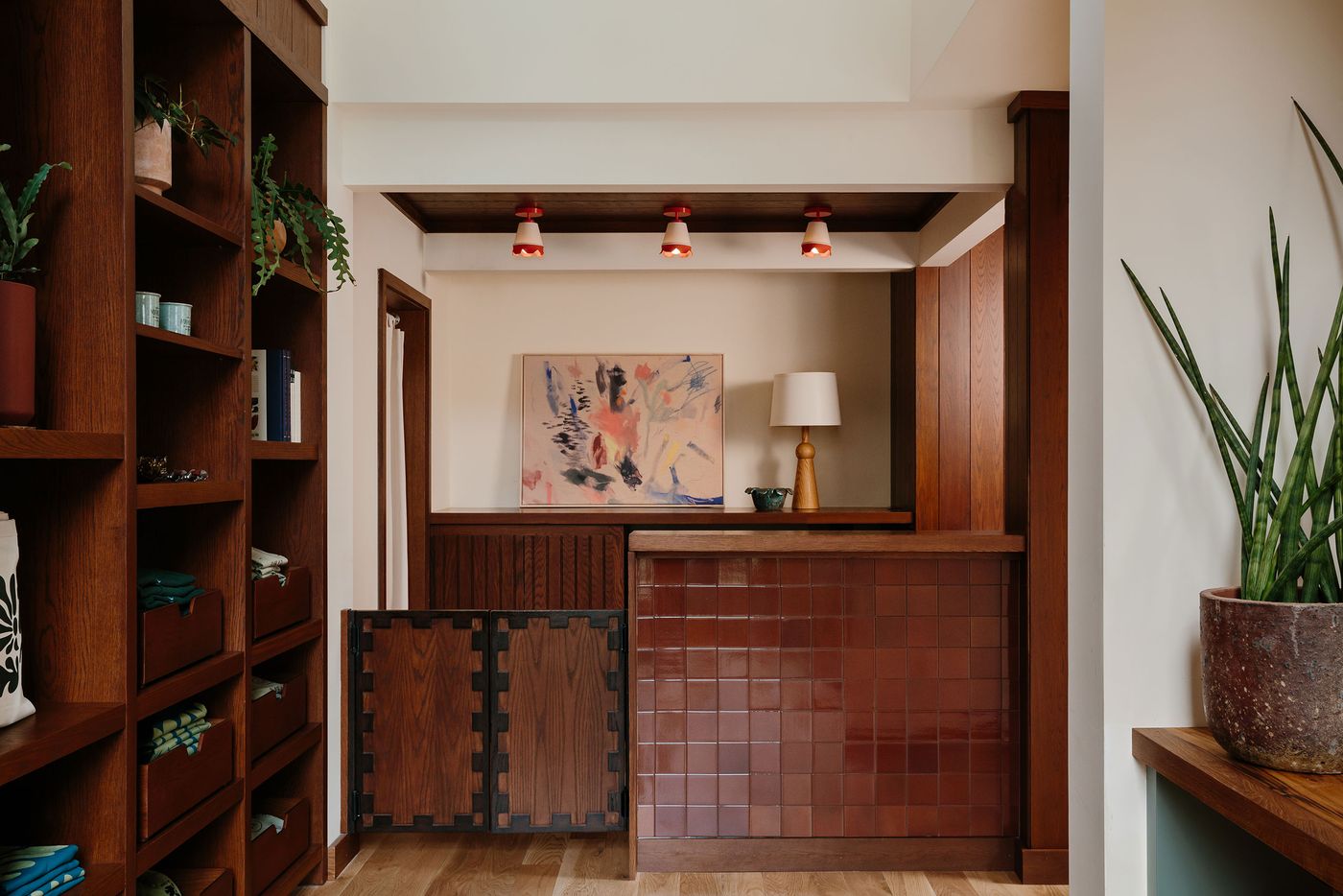
Photography by Brian W. Ferry.
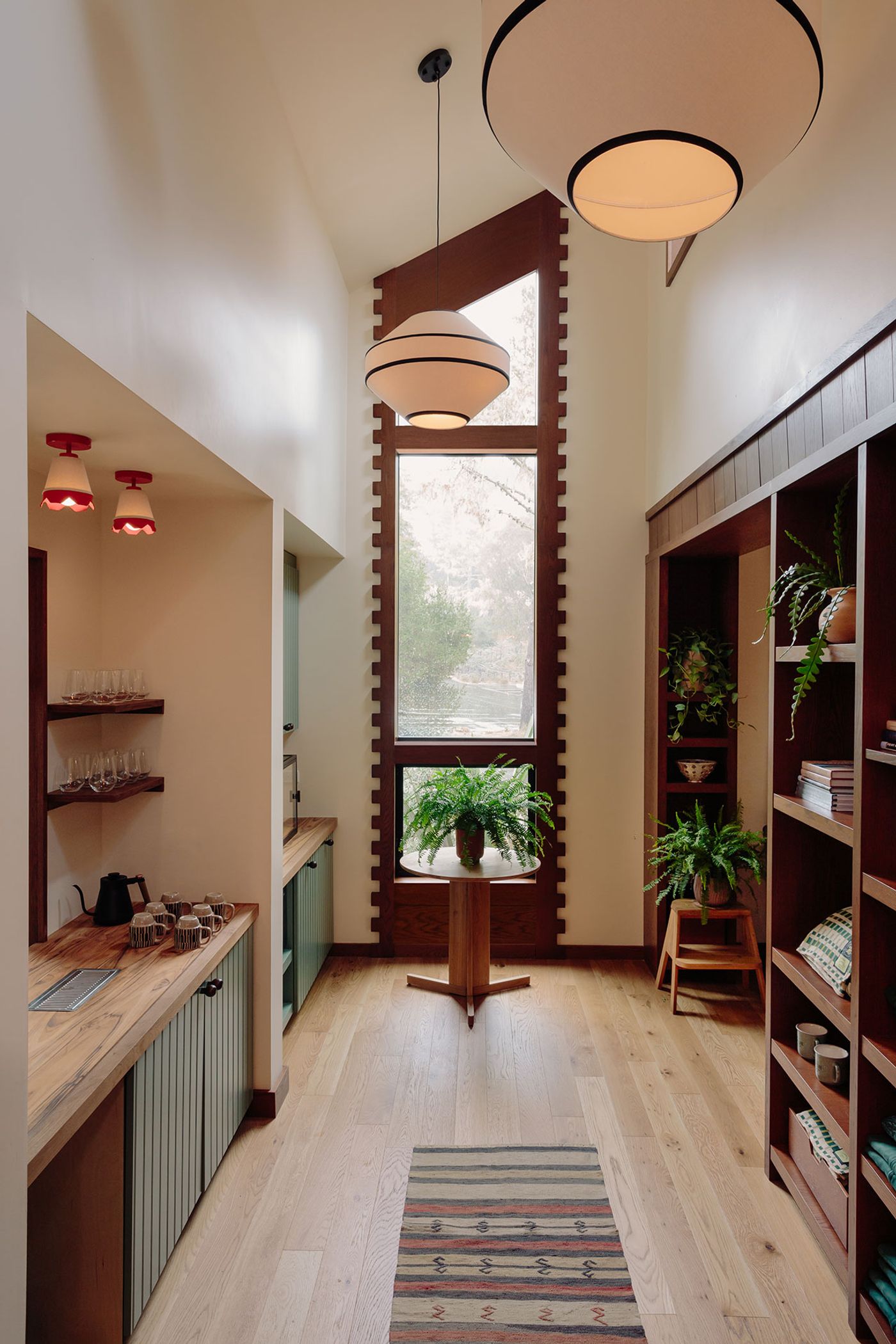
Photography by Brian W. Ferry.
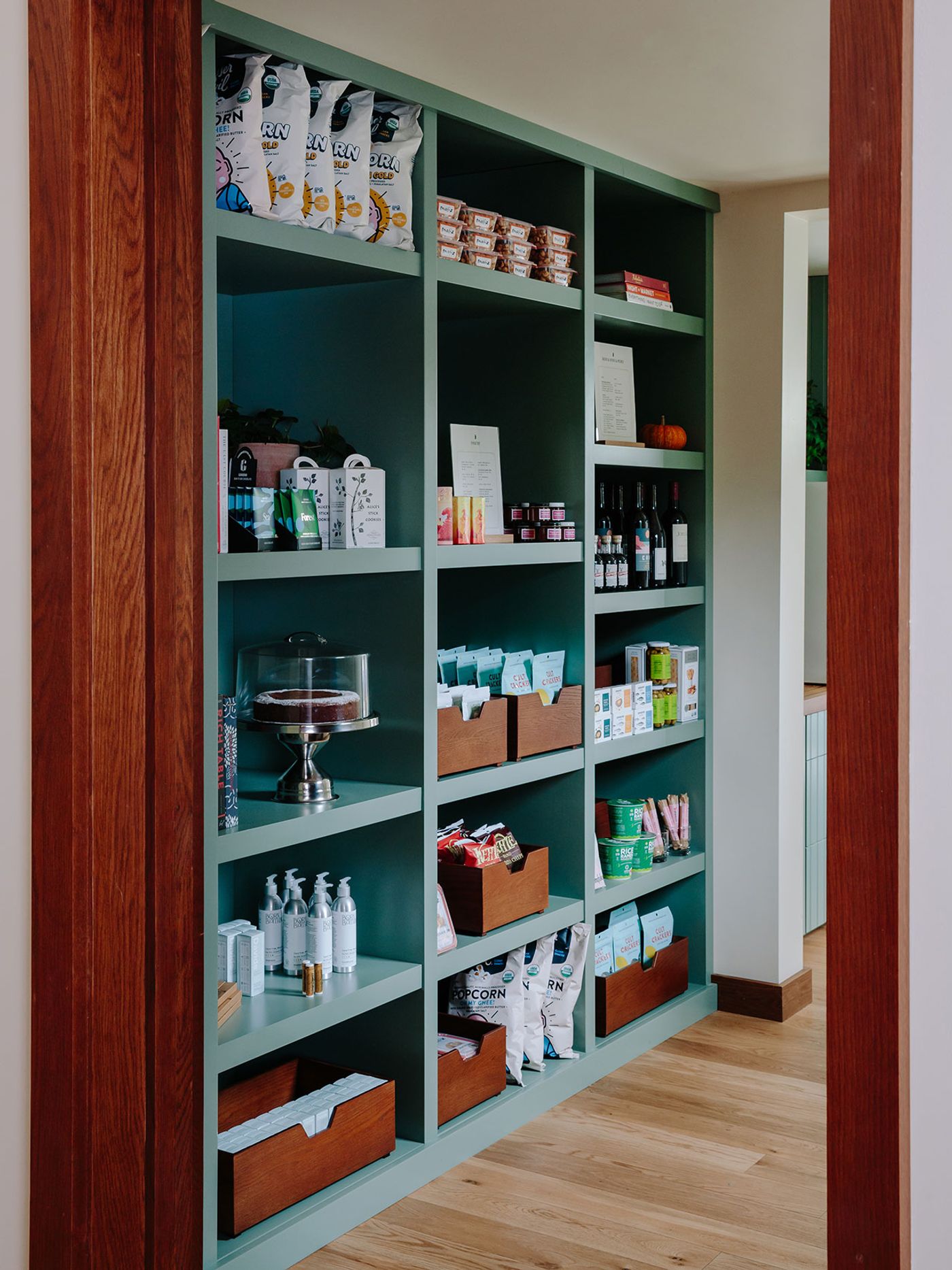
Photography by Brian W. Ferry.
In place of a formal lobby, the designers have opted for a collection of laidback, communal rooms with the aim of encouraging purposeful connection between guests. From a spacious sitting room set around a central fireplace, to more intimate lounge areas, to a reception desk doubling as a coffee bar serving fresh, locally made pastries and baked goods, the residential-type set up is imbued with a cozy and relaxed ambience. A kitchenette and a grab-and-go market offering local provisions, such as beer, wine and artisanal fare, add to the hotel’s informal charm and camp-esque sensibility, as does the Redwood Dining Hall, the hotel’s cafeteria-style restaurant.
In keeping with the property’s original character, the hotel’s design pays homage to Third Bay Tradition architecture, a hybrid of mid-century modernist and vernacular styles that flourished in the Bay Area after WWII, including its most iconic example, the Sea Ranch Lodge further up the coast, which reopened in 2022 after its own extensive renovation. A more modest version of California Modernism, which places an emphasis on local materials and traditions, the style’s eco-conscious, craft-based ethos informs the interior design which is characterised by cedar panelling, artful Bay-area made ceramic tiles and ample millwork. Meanwhile, a colour palette of earthy tones takes its cues from the natural surroundings which make their presence throughout the premises known thanks to oversized windows offering unfettered views.
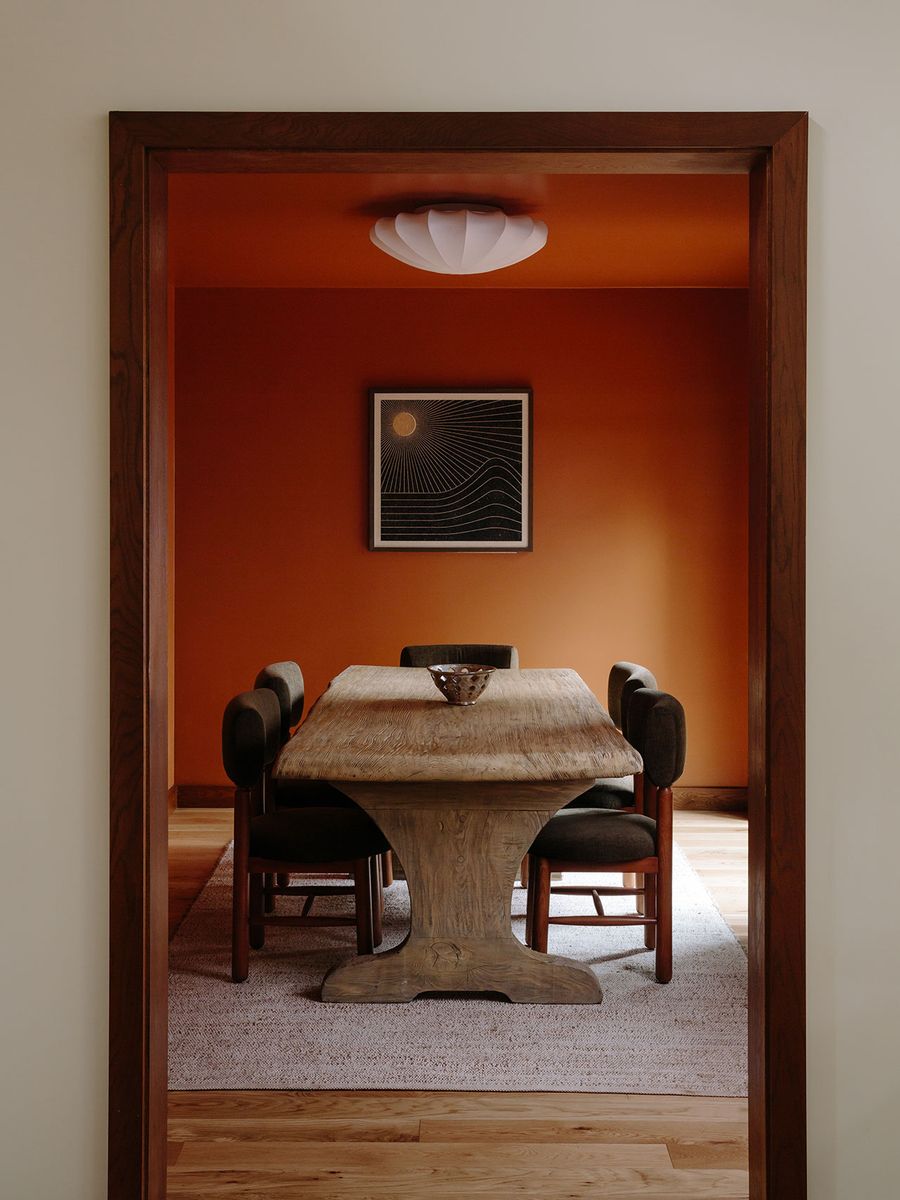
Photography by Brian W. Ferry.
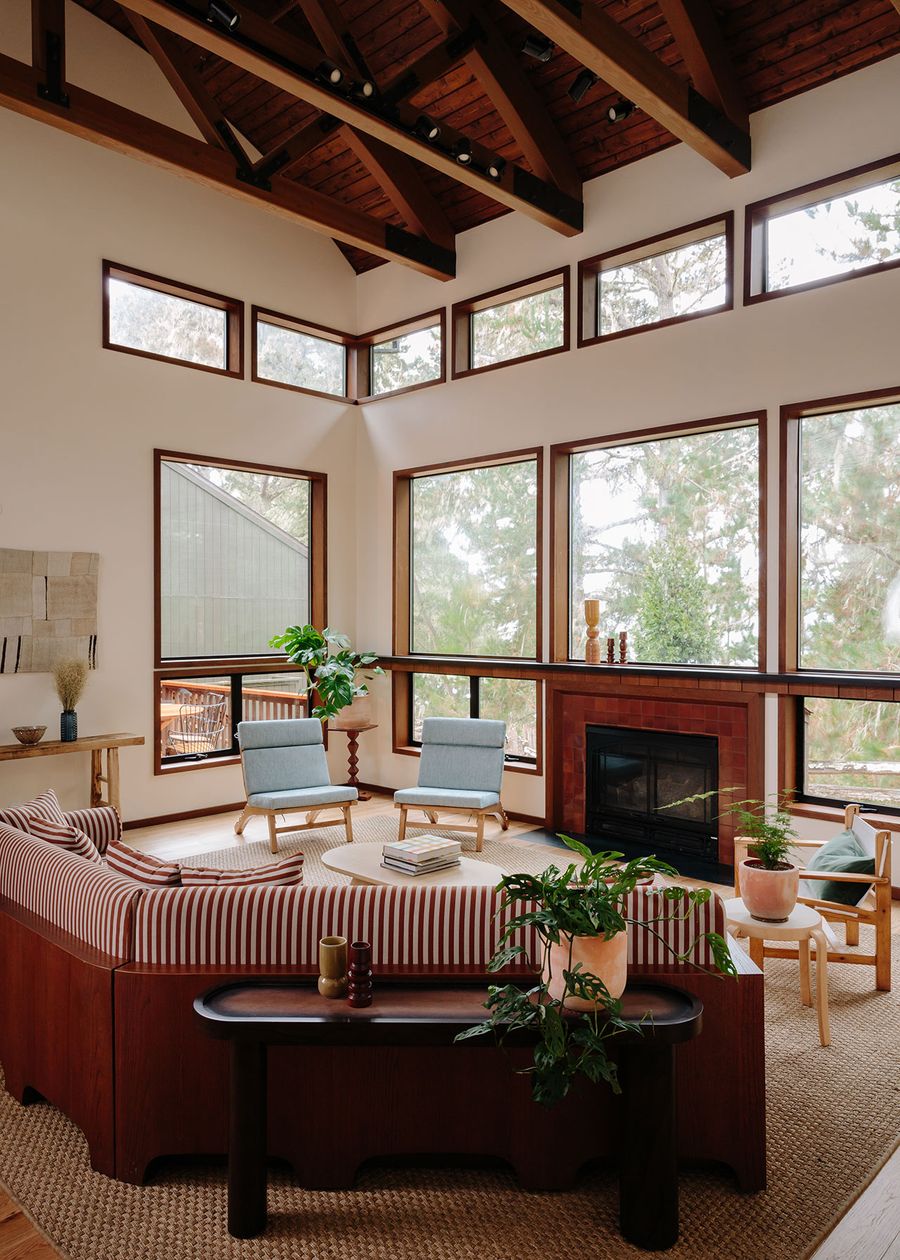
Photography by Brian W. Ferry.
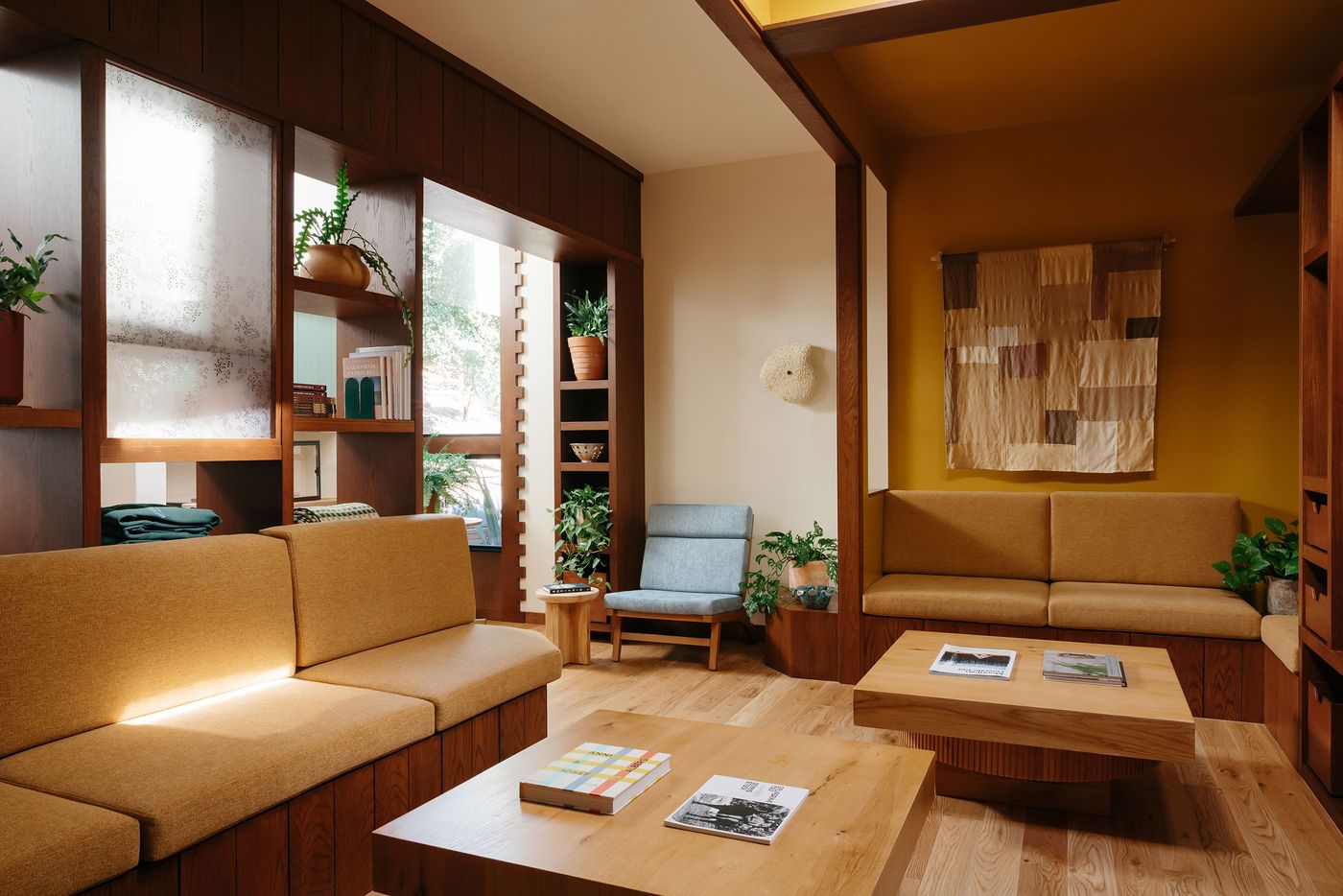
Photography by Brian W. Ferry.
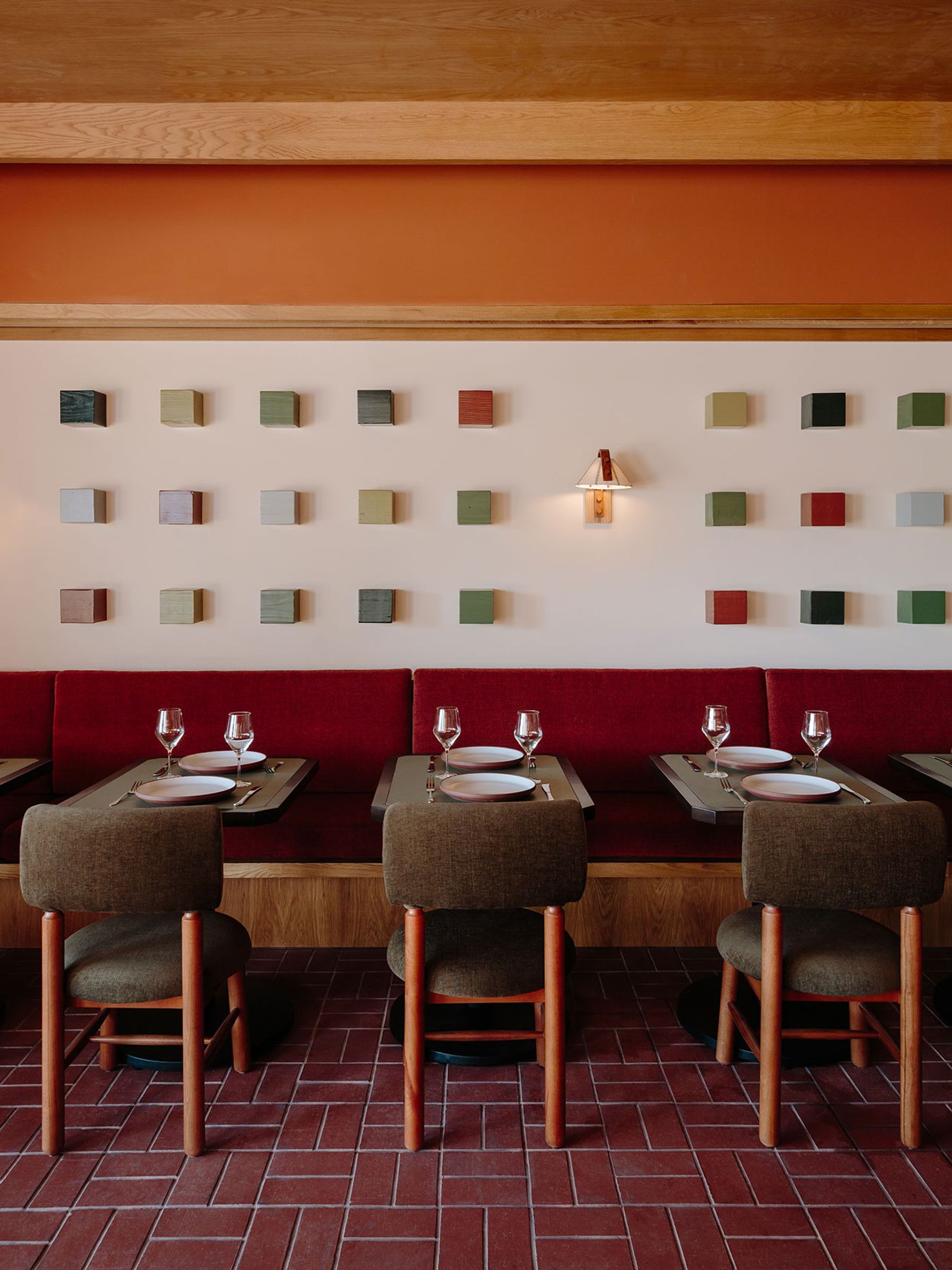
Photography by Brian W. Ferry.
A curated collection of artworks and decorative objects created in collaboration with local artists and artisans take a page from the property’s quirky history introducing unexpected moments of surprise and delight. Examples include a custom wall tapestry in the reception by Lookout & Wonderland, the Los Angeles-based workshop of art duo Niki & Yusuke Tsukamoto, along with a four-panel painting and a cubic wall installation by California-based artist Lukas Geronimas Giniotis in the dining hall.
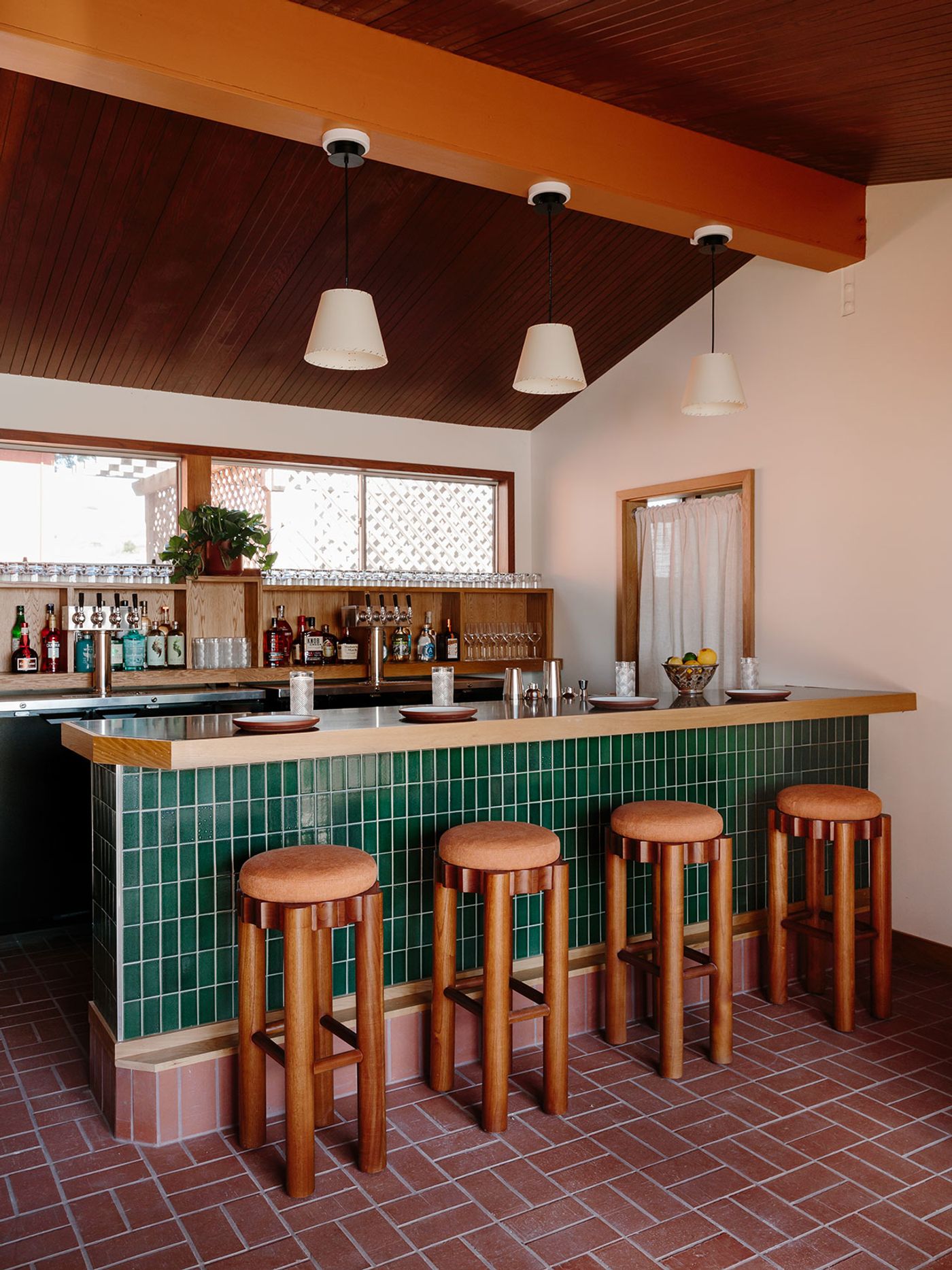
Photography by Brian W. Ferry.
Unexpected moments can also be found in the hotel’s rooms and suites in the form of whimsical, handcrafted details such as waving wooden chairs, colourful tiled backsplashes and geometric headboards. Custom-designed by Home Studios, as are most of the hotel’s furnishings, such details are mixed with heritage features most notably the sloped, wood-clad roofs – some of the guest bathrooms even feature the original tiles used when the property hosted the Synanon rehab centre in the 1960s. Characterful as they are, the hotel’s accommodations are above all else havens of peacefulness and tranquillity, which is why televisions don’t feature on the list of room and suite amenities in order to encourage guests to disconnect and immerse themselves in the serene surroundings.
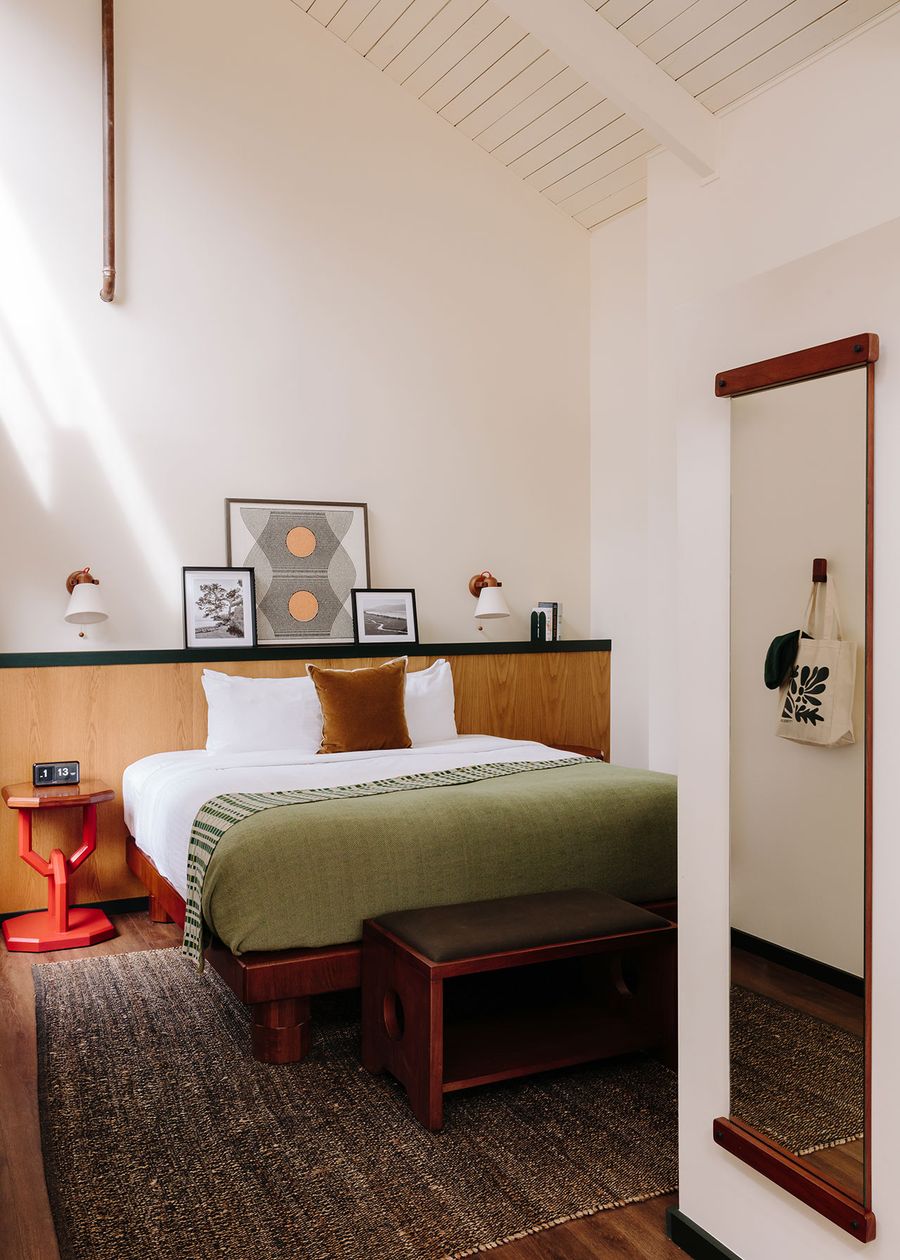
Photography by Brian W. Ferry.
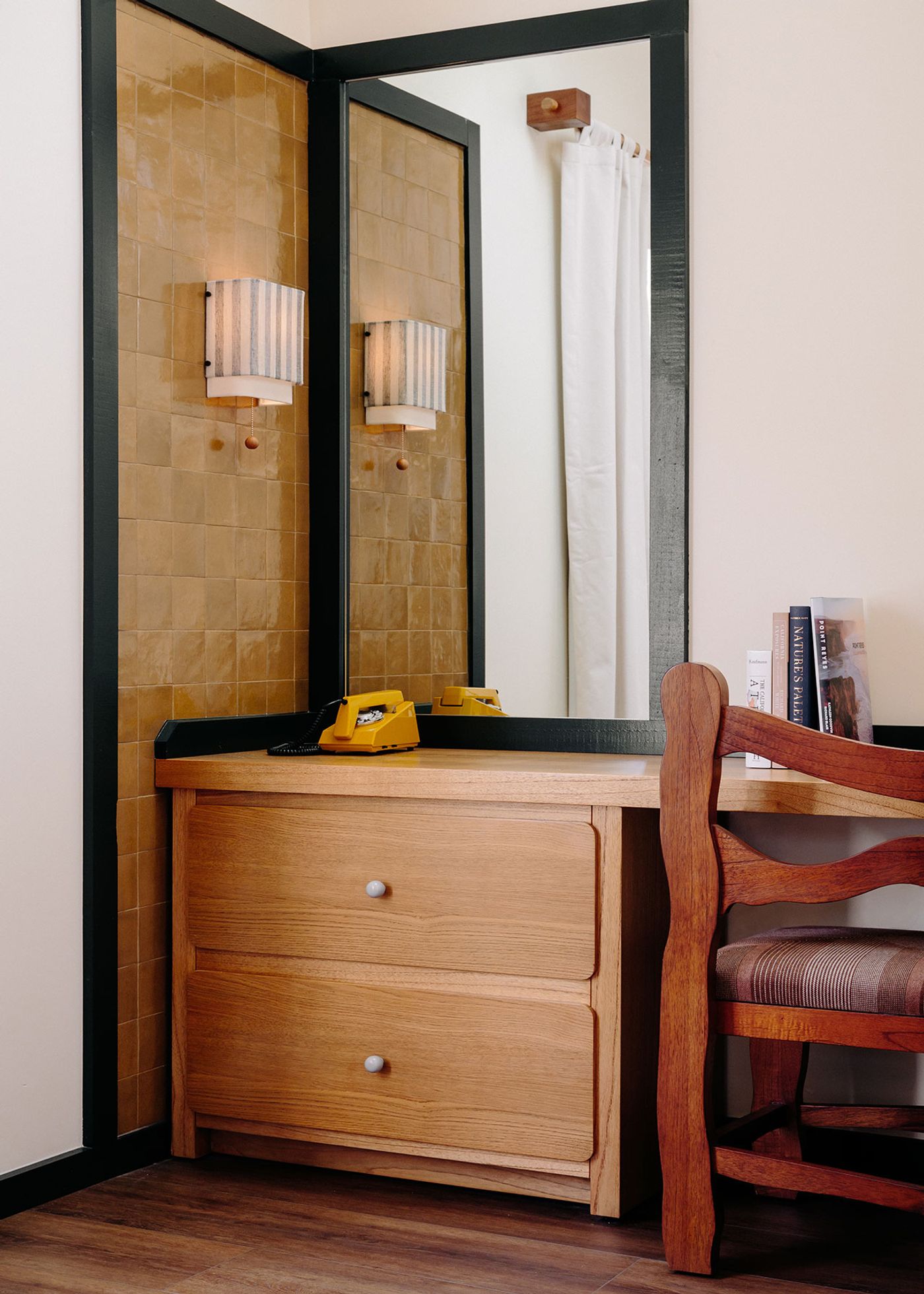
Photography by Brian W. Ferry.
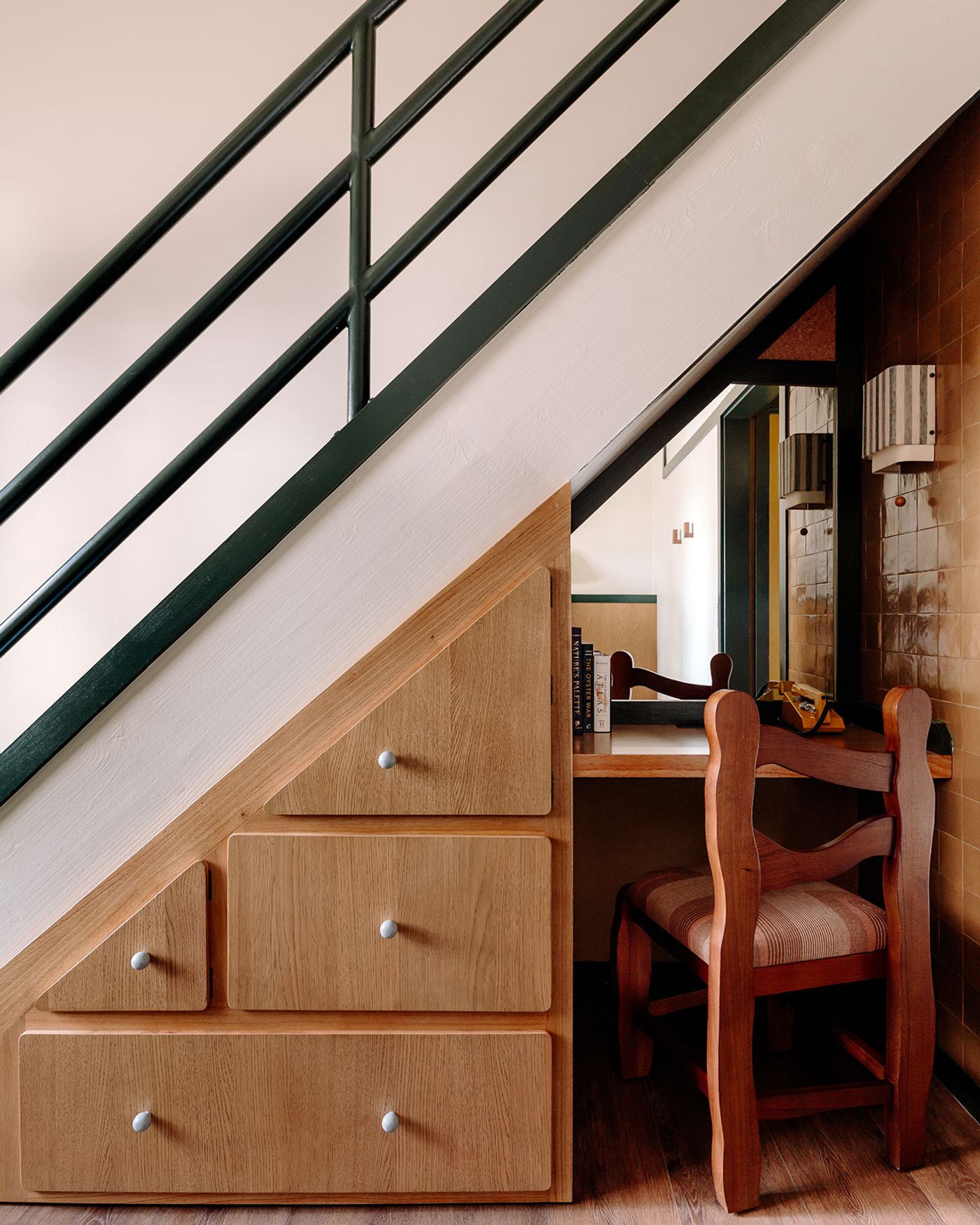
Photography by Brian W. Ferry.
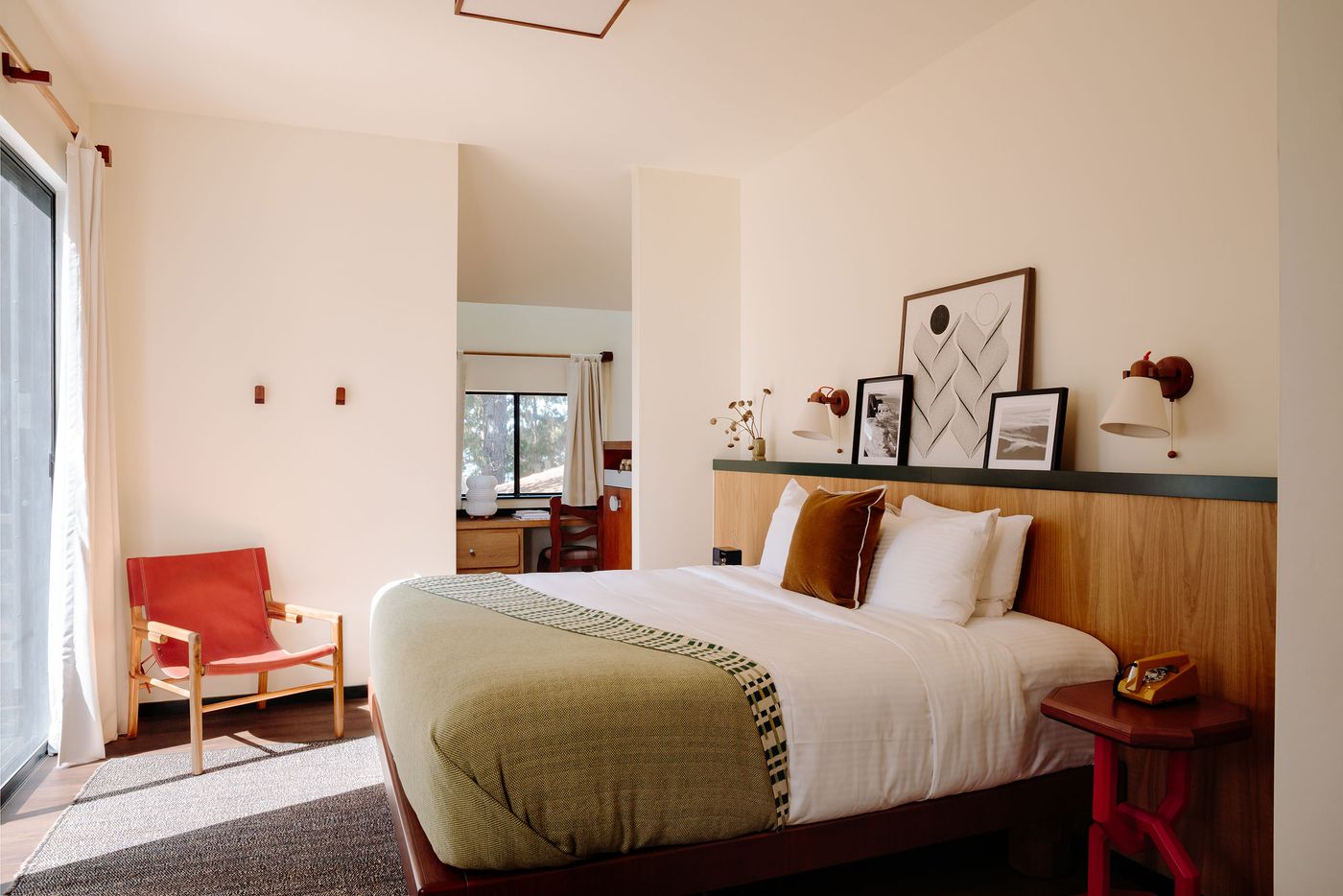
Photography by Brian W. Ferry.
With an abundance of outdoor pursuits including unique experiences such as bioluminescence kayak tours, fungi ID hikes, and wildlife safaris, plus visits to numerous vineyards, creameries, and oyster farms along with 3.5 miles of trails overlooking Tomales Bay, guests staying at the Lodge at Marconi are spoilt for choice. A spa and wellness centre that is in the works is sure to further enhance the hotel's promise of relaxation and rejuvenation.
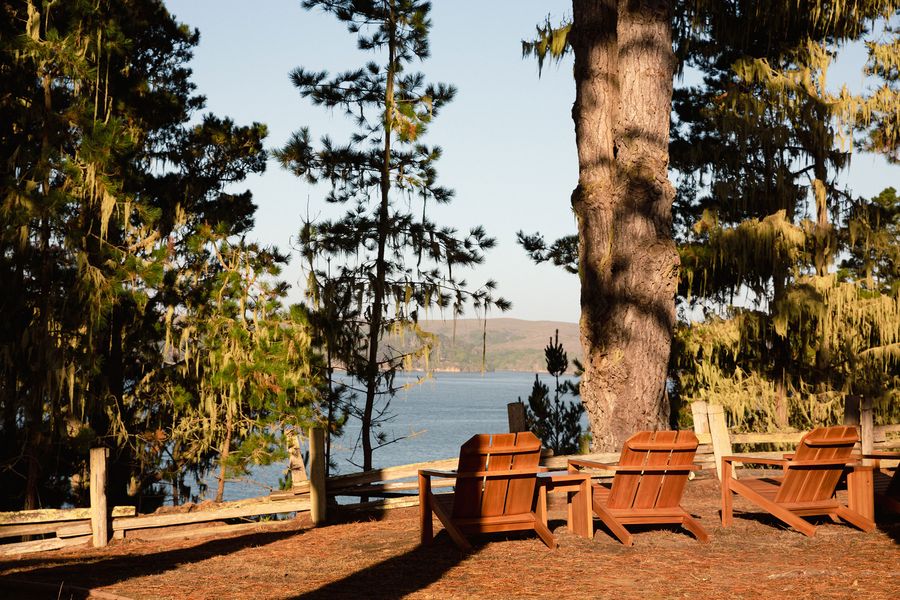
Photography by Brian W. Ferry.
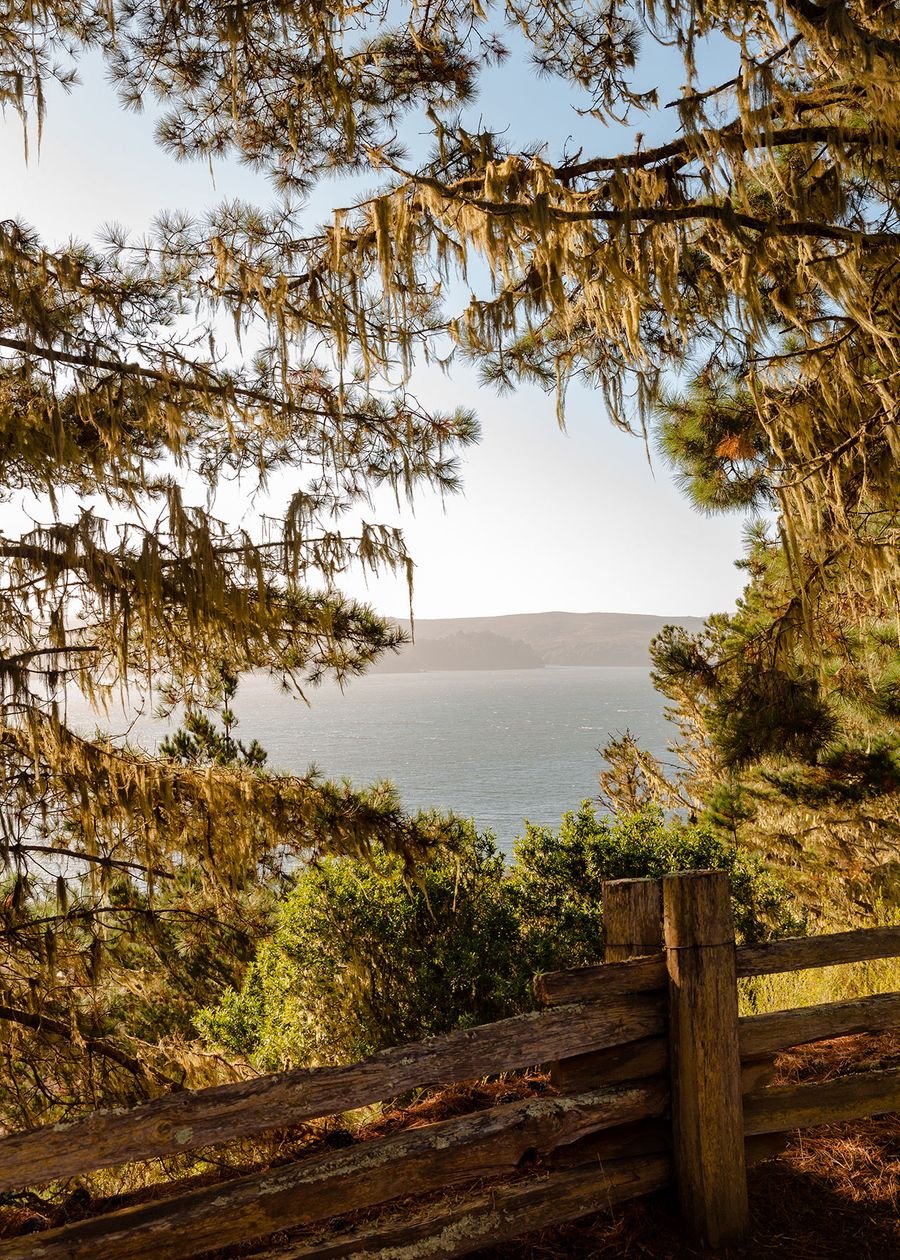
Photography by Brian W. Ferry.
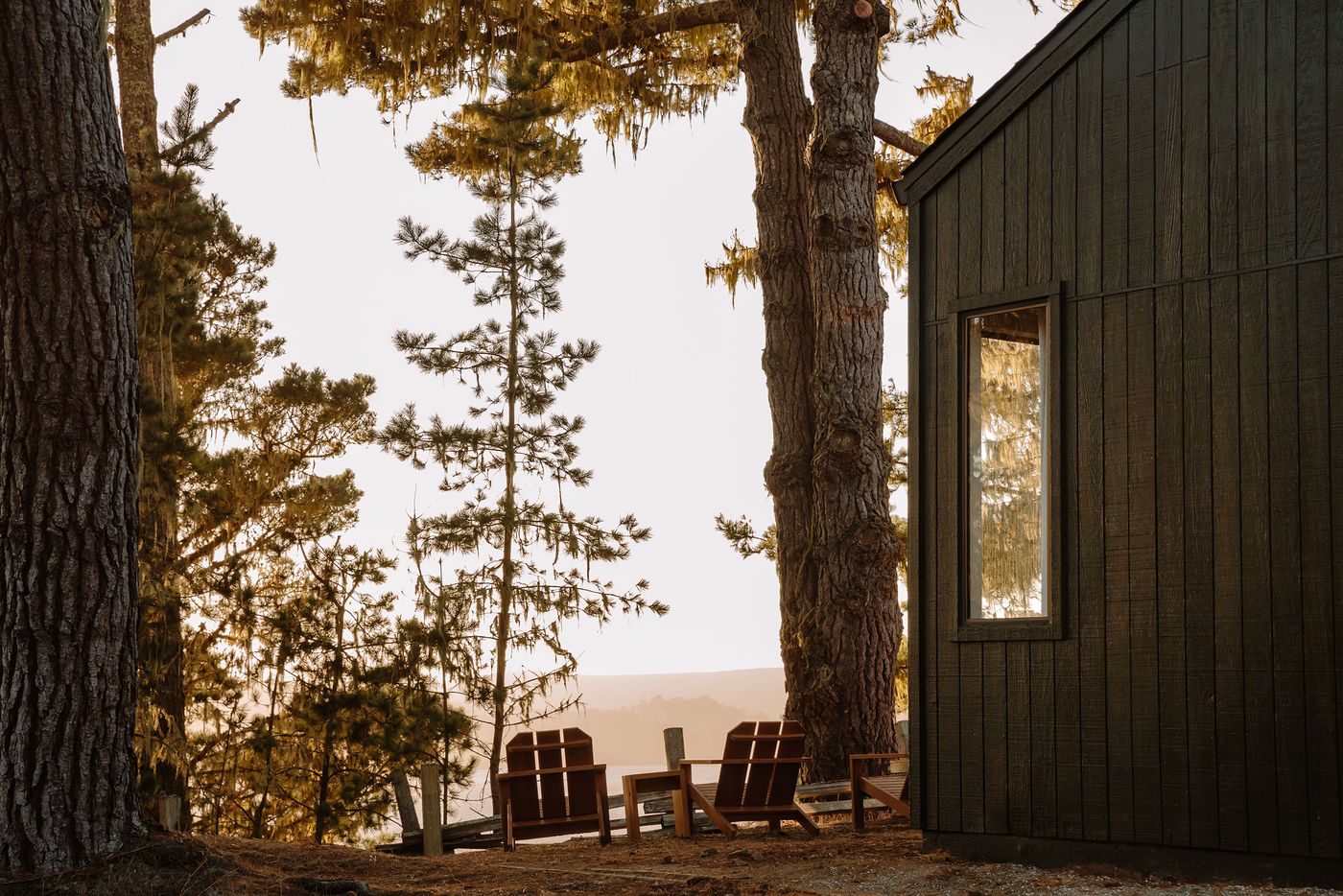
Photography by Brian W. Ferry.
